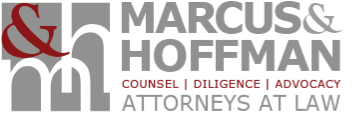In last month's Newsletter, we discussed whether an individual owner sitting as a Member of the Board of Directors assumes personal risks associated with actions taken by the Board. This edition continues with that theme by discussing the benefits and protections afforded to Associations by retaining a qualified expert when needed.
Have your Board Members ever asked you as a professional property manager whether a tree looks dangerous? Have they asked you whether or not a retaining wall looks like it may be leaning a bit too far? Have you been asked for advice on detailed topics like complex financial investing?
While property managers are experts in the field of property management, which encompasses many topics, managers are often asked for advice on complex issues outside their scope of expertise. At those times, you may wish to advise the Board to seek the advice of a qualified expert in the field at issue, such as attorneys, engineers, accountants or other professionals.
There are many benefits to obtaining the advice of a qualified expert. The Board is obtaining important information that will allow it to fulfill its fiduciary duty and make the best decision possible on behalf of the Association. Further, as we discussed in the August edition of the Newsletter, a decision based upon the advice of a qualified expert protects the Association generally and the individual Board Members specifically from allegations or lawsuits alleging that they have failed to meet their fiduciary obligations. And finally, an insurance company will have greater difficulty denying coverage in the event that a lawsuit is filed, when the Board has relied upon the advice of a qualified expert.
Often the authority to consult experts is granted by the Association's governing documents and, in the event they do not, both the Uniform Planned Community Act, at Sections 5302 and 5303, and the Uniform Condominium Act, at Sections 3302 and 3303, specially provide the Board with this power. This power is retroactive and, as such, most likely applies to all Associations regardless of the date on which they were created.
We hope that this Newsletter is helpful to you and we welcome your feedback and suggestions, particularly on topics that you would like to see featured in a future edition. Thank you.
Have your Board Members ever asked you as a professional property manager whether a tree looks dangerous? Have they asked you whether or not a retaining wall looks like it may be leaning a bit too far? Have you been asked for advice on detailed topics like complex financial investing?
While property managers are experts in the field of property management, which encompasses many topics, managers are often asked for advice on complex issues outside their scope of expertise. At those times, you may wish to advise the Board to seek the advice of a qualified expert in the field at issue, such as attorneys, engineers, accountants or other professionals.
There are many benefits to obtaining the advice of a qualified expert. The Board is obtaining important information that will allow it to fulfill its fiduciary duty and make the best decision possible on behalf of the Association. Further, as we discussed in the August edition of the Newsletter, a decision based upon the advice of a qualified expert protects the Association generally and the individual Board Members specifically from allegations or lawsuits alleging that they have failed to meet their fiduciary obligations. And finally, an insurance company will have greater difficulty denying coverage in the event that a lawsuit is filed, when the Board has relied upon the advice of a qualified expert.
Often the authority to consult experts is granted by the Association's governing documents and, in the event they do not, both the Uniform Planned Community Act, at Sections 5302 and 5303, and the Uniform Condominium Act, at Sections 3302 and 3303, specially provide the Board with this power. This power is retroactive and, as such, most likely applies to all Associations regardless of the date on which they were created.
We hope that this Newsletter is helpful to you and we welcome your feedback and suggestions, particularly on topics that you would like to see featured in a future edition. Thank you.

